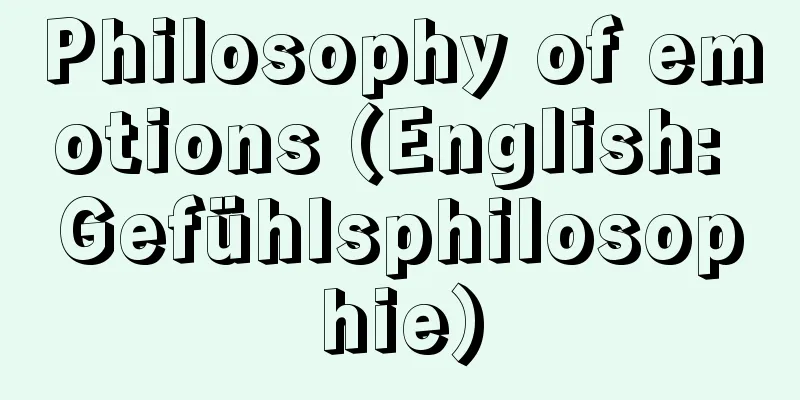Philosophy of emotions (English: Gefühlsphilosophie)

|
Also called Glaubensphilosophie, this is a philosophy advocated by German philosophers F. Jacobi and J. Herman. In opposition to 18th-century rationalism, it asserted the superiority of emotion over reason, and argued that while reason does not break down objects and provide true knowledge, it is emotion and faith, which are intuitive knowledge, that can truly grasp the reality of the external world. It also rejected any systematization. Source: Encyclopaedia Britannica Concise Encyclopedia About Encyclopaedia Britannica Concise Encyclopedia Information |
|
信仰哲学 Glaubensphilosophieともいう。ドイツの哲学者 F.ヤコービや J.ハーマンらによって唱道された哲学。 18世紀の合理主義に反対して,理性に対する感情の優位を主張し,理性が対象を分解して真の知識を与えないのに対して,直覚的知である感情や信仰こそが外界の実在を真に把握できるとした。また一切の体系化を拒否した。
出典 ブリタニカ国際大百科事典 小項目事典ブリタニカ国際大百科事典 小項目事典について 情報 |
Recommend
American Heritage
...His wide-ranging achievements, including numer...
Lake Saroma - Saromako
A saltwater lake on the coast of Okhotsk in north...
Kirkos - Kirkos
…In Greek mythology, Daedalion, whose daughter wa...
Kanaga porcupine - Kanaga porcupine
...A general term for rodents with long, sharp, n...
Tail rafters - Odaruki
〘 noun 〙 A thick diagonal member protruding from a...
Swaddling
…Children's clothes began to be distinguished...
Takaragamine ruins
This Jomon period ruins is located in Maeyama, Kit...
Family name system
It is also called the "Ujikabane" syste...
Awaji tile
A regional brand of the Kinki region, Hyogo prefec...
Tiflis
...The name comes from hot mineral springs ("...
Fronto (English spelling) Marcus Cornelius Fronto
An ancient Roman orator. Born in Cirta, Numidia. ...
Barium Peroxide - Catancabarium
BaO 2 (169.33). When hydrogen peroxide is added t...
Minatogawa Shrine
Located in Tamon-dori, Chuo-ku, Kobe, Hyogo Prefe...
Cost Accounting Standards Board
…In Japan, after World War II, the Manufacturing ...
Ogasawara [Village] - Ogasawara
…A group of islands in the Pacific Ocean south of...









